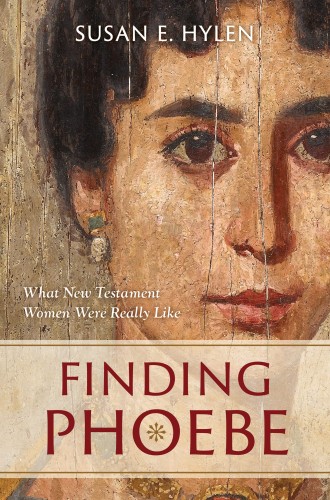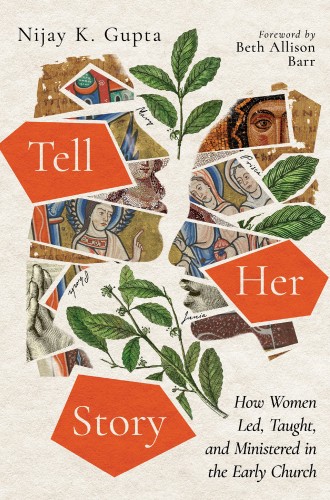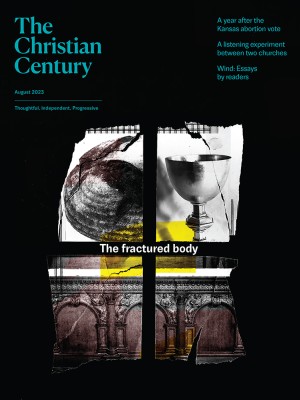We still need books about biblical women’s liberation
Two new ones by Susan Hylen and Nijay Gupta offer correctives many churches have not yet internalized.
For those who interpret, teach, and preach on passages related to women in the New Testament, Susan Hylen provides a new and fascinating lens: Phoebe, who appears only once in the Bible. Hylen helps readers understand the biblical world by diving into the questions that the original readers and hearers of Romans likely brought to Paul’s commendation of Phoebe.
Paul packs a lot of information into two short verses: “I commend to you our sister Phoebe, a deacon of the church at Cenchreae, so that you may welcome her in the Lord, as is fitting for the saints, and help her in whatever she may require from you, for she has been a benefactor of many and of myself as well” (Rom. 16:1–2). Hylen addresses several questions arising from this description: what it means that Paul commends Phoebe, why he considers her “our sister,” what makes her a deacon, the significance of being from Cenchreae, and what it means to be a benefactor. Much is left to the imagination, because very little is known about Phoebe. At the same time, Hylen extends her research beyond Phoebe, enlightening readers about a number of other biblical women.
Read our latest issue or browse back issues.
Hylen examines the cultural context of first-century women related to women’s rights to property and wealth management, practices of marriage and divorce, types of women’s occupations, the role of social influence and status, and the accepted “feminine virtues,” including those related to women’s speech and silence in particular contexts. Her research will help readers question assumptions and rethink the social and economic status of biblical women. I was surprised to learn that women’s agency and empowerment in the Gospels and Epistles are much greater than I’d previously considered, especially for women who had no father or husband at their side.
Hylen also examines some of the contradictions raised by the Epistles. For example, she describes women’s agency in being able to manage wealth and property or to be a patron of a given city or organization. At the same time, she raises questions about Paul’s words regarding women being silent in church. How did these contradictions coexist within various contexts?
Some readers may find it frustrating that Hylen refuses to give answers, and others may find it freeing. Instead of drawing conclusions, Hylen provides study questions for readers to use in interpreting what she has presented. Most of the time, the result is inconclusive but still enlightening. Although I noticed a few places where the use of Phoebe as the representative woman of the first-century Roman Empire seemed a bit of a stretch, my view of biblical women was significantly expanded by Finding Phoebe.
Nijay Gupta offers a complementary approach to Hylen’s. In Tell Her Story, Gupta provides some cultural and historical context to his examination of various women in the New Testament, but he primarily focuses on the text itself: its words and their meanings in the biblical Greek. While he highlights several individual women—including Lydia, Phoebe, and Junia—he also addresses the passages about women speaking (or not) in church and the household codes.
Tell Her Story is in many ways a confession on Gupta’s part that as an evangelical male Bible professor he hasn’t focused enough (if at all) on the meaning of the key passages that fortify evangelical churches’ exclusion of women from ministry and leadership. Gupta grounds his argument that God indeed calls women into leadership in an examination of Deborah, “the prophet, judge, and mother over Israel” (Judg. 4–5). He then moves to Genesis 1–3, debunking some common prejudices against women that arise from interpretations of Eve. After laying that groundwork, he moves to the New Testament.
Full disclosure: at first it was really hard for me to admit that such a book is still needed and should be read and studied widely. In 1975, I read All We’re Meant to Be: A Biblical Approach to Women’s Liberation by Letha Scanzoni and Nancy Hardesty. This work provided a life-giving and life-changing understanding of the Bible. I had come from a church tradition much like Gupta’s, and I needed the help of people like Scanzoni and Hardesty to find biblical confirmation of my own call to ministry.
Many century readers either cut our teeth on the work of women like Scanzoni and Hardesty or grew up taking women’s leadership in the church for granted. We aren’t the primary audience for Tell Her Story. But many liberal-leaning Protestant women serve as clergy in places where the predominant biblical and theological worldview is that from which Gupta came and to which he speaks directly. Some women aren’t even welcomed at the local ministerial association. This is the book to give to such ministerial groups! In addition, there are some congregations in mainline denominations that are willing to call and receive women clergy but still have their doubts. Unfortunately, there are plenty of audiences within the realm of progressive churches that need Gupta’s work.
Both Hylen and Gupta offer gifts to the church. Men and women, clergy and laity, progressive and traditional readers, teachers and preachers will have their assumptions challenged and their interpretations expanded by Finding Phoebe and Tell Her Story.







